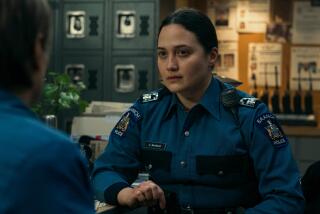Not Just for Kids: ‘UnderDogs’ by Markus Zusak
UnderDogs
An Omnibus
Markus Zusak
Arthur A. Levine: 502 pp., $19.99, for ages 12 and up
There’s nothing like success to inspire reissues of an author’s early work. It happens all the time with adult fiction. Increasingly, it’s also happening with young-adult titles, including Markus Zusak’s “UnderDogs” — a trilogy of the Australian writer’s first three novels packaged together in a single book.
Zusak is the author of “The Book Thief,” a coming-of-age story about a young girl growing up in Nazi Germany. That novel was a 2007 Michael L. Printz Honor Book and a New York Times bestseller that continues to top young adult sales lists even four years after its initial publication.
Zusak’s popularity is well-deserved. He writes emotionally engaging stories with understated humor and a bittersweet style that refuses to play by straightforward grammatical rules. His earliest published works share many of the same stylistic hallmarks and themes of belonging and survival. They just center on a different geographic region and cast of characters — namely, the teenage Wolfe brothers, Cameron and Ruben, who, as all the oi’s and g’day‘s seem to indicate, live in Australia.
The fictional Wolfes were inspired by two real-life brothers. In his author’s note at the book’s beginning, Zusak says the voice of 15-year-old Cameron is really his own. The voice of Ruben is similar to Zusak’s actual brother. In his first published book, “The Underdog,” which is published in the U.S. for the first time as part of this omnibus, Cameron is a loner with a big heart who slowly comes to realize that the unsatisfying life he’s living may just stay that way. Yet, despite likely failure, he still has to take risks.
That theme carries through to the other titles in this collection, when Ruben and his brother start boxing for money in “Fighting Ruben Wolfe,” and when Cameron pursues the affection of his brother’s cast-off love interest in “Getting the Girl.” No one in the Wolfe family is a winner. The members of this seven-person blue-collar clan are merely survivors, Cameron observes, whether it’s his plumber dad, his wash-woman mom or Cameron and Ruben, who stave off the boredom of underemployment and the restlessness of youth with brawls and other up-to-no-good activities.
It’s the hardscrabble life of the working class, for which there’s little joy or hope of escape, yet Cameron’s voice offers glimmers of redemption. All three stories are told from Cameron’s questioning, self-deprecating point of view, expressed in passages strung together from short sentences, in fragments of thoughts that hang together to make a point.
“The day and the walk weren’t the success or rejuvenation I had been looking for.
I kept walking.
Have you ever done that?
Just walk.
Just walk and have no idea where you’re going?
It wasn’t a good feeling, but not a bad one either,” Cameron writes in stories that periodically step back from the action to acknowledge the reader and give hints as to how the tale will ultimately play out.
The tales invariably involve a lot of fighting, both physical and metaphorical, as Cameron works to break free of how his family has defined him. Part of that fight involves Cameron’s, rather, Zusak’s, aspirations as a writer — a theme that plays a small part in all three stories. It’s the fights you don’t know you’ll win that test you, Cameron says. Luckily for readers of “The Book Thief,” Zusak kept fighting those fights.
More to Read
The biggest entertainment stories
Get our big stories about Hollywood, film, television, music, arts, culture and more right in your inbox as soon as they publish.
You may occasionally receive promotional content from the Los Angeles Times.






